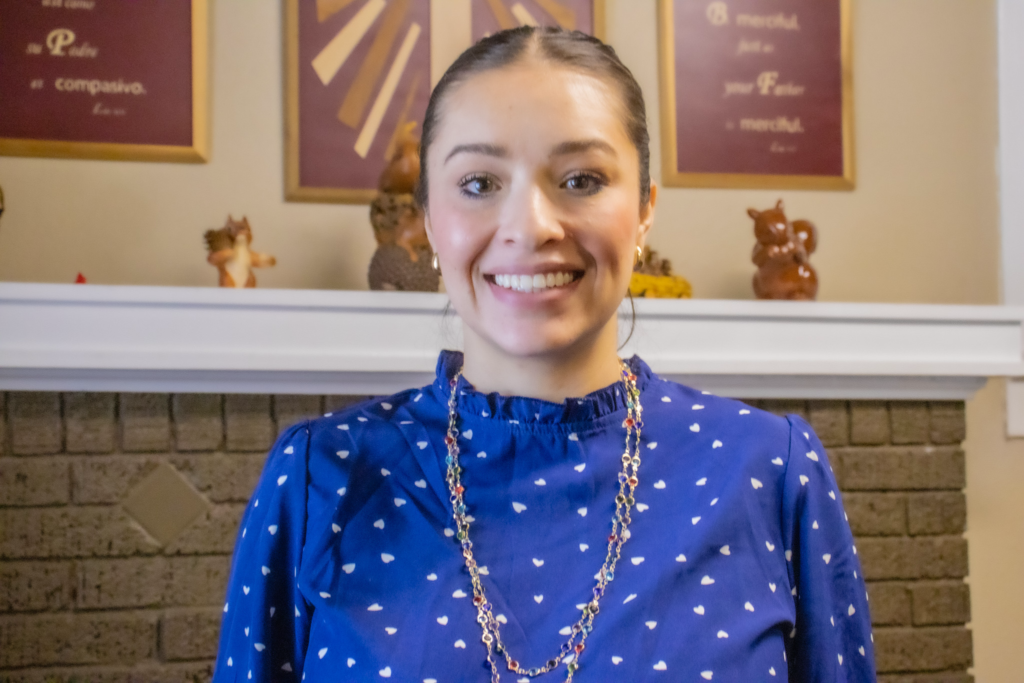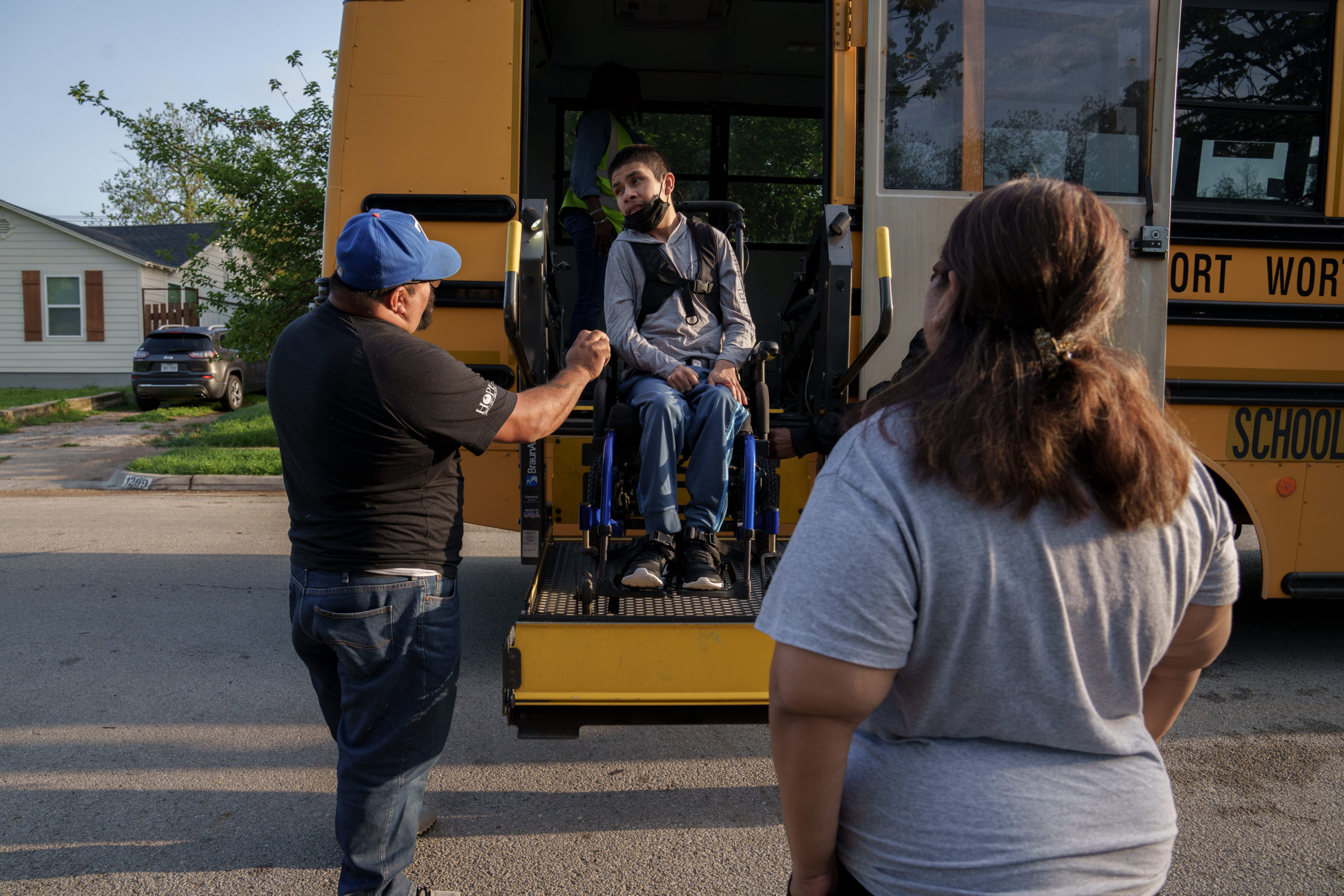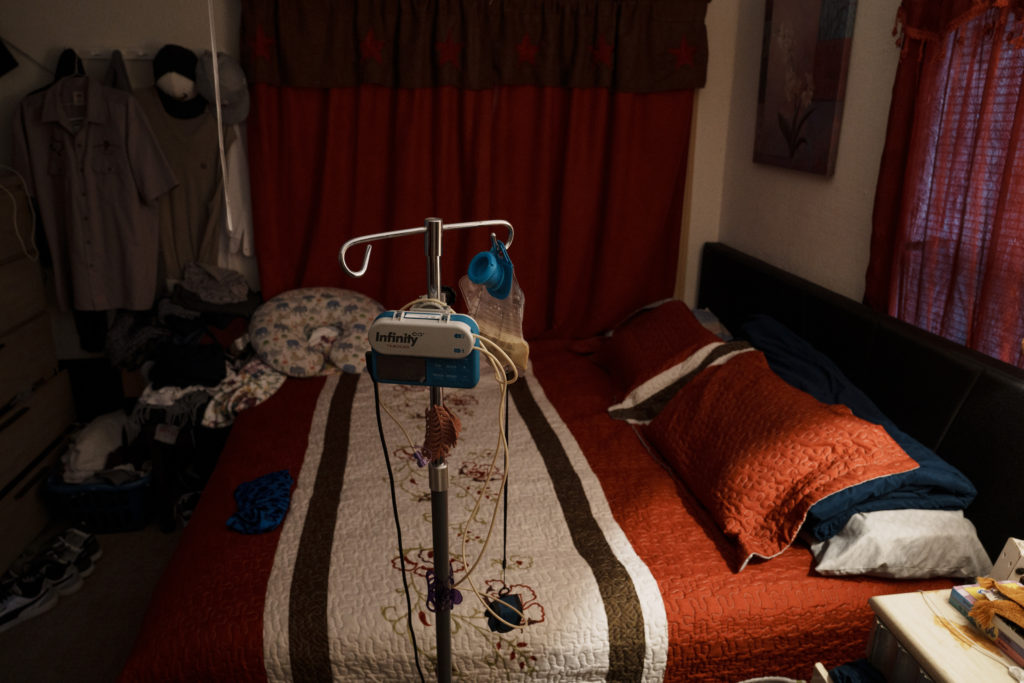Every morning, Elisa helps her 17-year-old son, Angel, get ready for school. Elisa gives him his meds, gets him dressed, and secures him in his wheelchair. Elisa and Angel lived in their home country of Mexico when a three-year-old Angel was diagnosed with drug-resistant epilepsy. His doctors told Elisa her son would only live another 7 years.
So she left.
“I do not know where you get the strength to do those things, but seeing the health of my son – well I had to find it,” Elisa said.
Undocumented immigrants are more likely to report barriers in accessing healthcare when compared to U.S. citizens, as well as having increased rates of postponing care or avoiding care entirely.
Having Very Few Options
Elisa migrated to the zip code 76104 in Historic Southside Fort Worth 10 years ago and started working to pay for the medical treatment for her son. Given her status as an undocumented immigrant, she had very few options.
“When we got here, neurologists cost $400, $500, for a consultation,” Elisa said. “I did not have that kind of money.”
76104, located in south Fort Worth, has a life expectancy of 67 years, making it the zip code with the lowest life expectancy in Texas. The average life expectancy in the state is 76.5. (Here’s more information we found)
The median household income for undocumented immigrants was $36,000 in 2007, which is significantly less than their U.S.-born peers’ income of $74,580 in 2022. 20 percent of undocumented immigrants live below the poverty line. In a state where average annual private insurance premiums for families can rise to over $20,000, it is not difficult to see that for many undocumented immigrants, private insurance is simply an impossibility.
Ineligible for Health Insurance Programs
Texas has the largest uninsured population in the entire U.S. and has the second-largest population of undocumented immigrants. Across the country, 1 in 2 undocumented immigrants do not have insurance. In Tarrant County, that number increases to 71 percent, a staggering difference from the County average of 16 percent.
In Tarrant County, organizations like Mercy Clinic and ICE out of Tarrant address systemic issues relating to healthcare access for undocumented populations. They support the undocumented community through communal healthcare and advocacy for policy change to reduce healthcare disparity in Tarrant County and across Texas.
Undocumented immigrants are ineligible for federal health insurance programs like Medicare and Medicaid for preventative and non-emergency care. They only qualify for “emergency Medicaid”, and many are left to rely on community health centers or emergency room services. For example, undocumented immigrants with kidney issues who rely on regular dialysis to maintain their health are often forced to receive emergency-only hemodialysis, which puts them at 14 times greater risk for death compared to those who receive regular dialysis.
Undocumented immigrants are more likely to report barriers in accessing healthcare when compared to U.S. citizens, as well as having increased rates of postponing care or avoiding care entirely. In cases where undocumented immigrants are eligible, they often encounter language barriers and confusion. Hostile immigration laws also create the illusion of healthcare ineligibility, regardless of actual eligibility.
More problems arise when patients who are unable to access prenatal care are more at risk of premature birth, low birth weight and birth defects. All persons born in the United States are U.S. citizens, regardless of the documentation status of the person giving birth. Postpartum care is often more difficult to acquire as well for undocumented people.

Mercy Clinic is a volunteer-run organization in Fort Worth that serves uninsured residents of Tarrant County who are no higher than 200 percent above the national poverty line. According to its website, the clinic provides free healthcare and spiritual care, making it one of the few places that offers free healthcare for undocumented residents in south Fort Worth.
Chief operations officer Lorena Montalvo, who first joined the organization as a volunteer translator, has been a member for 11 years.
“I fell in love with the mission, with the people that work here,” Montalvo said. “And I just decided to come and translate every evening.”


“Helping her find those resources with the limited English that I had, kind of opened my eyes,” Montalvo said. “Okay, if my mom has those issues, I am sure there are tons of people in this city who also need help.”
76104, located in Historic Southside of Fort Worth, is one of the primary zip codes that Mercy Clinic assists. Much of the Hispanic community in the area do not participate in population-related surveys, so they are likely massively underrepresented in figures alone, says Montlavo. And many of these individuals are undocumented, having been in the U.S. for less than a year. “But they are there. When we started working with 76104, two years ago, we were expecting the majority to be African Americans, based on the research we had done. But we were astonished that there was a large Hispanic population. 99% of the patients that come from 76104 are Hispanic.” Montalvo said.
The amount of undocumented individuals in any given area is often underreported due to many undocumented households or individuals not participating in documentation related surveys.

Undocumented Individuals are Apprehensive
“They do not have the resources. They do not know about the resources. So they come here to Mercy Clinic, with different questions on housing, food, health care.” Montalvo said.
Her mother, who became pregnant shortly after arriving in the country, could not find a doctor or even a ride to the hospital due to the language barrier. At just 10 years old, Montalvo lacked knowledge of the healthcare system in the U.S. Eventually, she found support in her school counselor, whose information she then relayed to her mother.
Though hospitals are required to accept any and all patients, regardless of insurance of immigration status, many undocumented individuals are apprehensive.
Montalvo has heard reports that patients are being asked about their immigration status. Doctors are not required to ask for documentation status outside of insurance-related requests, nor are they allowed to report documentation status to law enforcement, as this is protected by the Health Insurance Portability and Accountability Act (HIPAA).
“If a nurse or a doctor asks about their immigration status, that is a red flag for them because a lot of the times they think that they will call immigration on them,” Montalvo said.
Mercy Clinic does not ask about immigration status or any sensitive information to remain a trusted resource for the community. Part of that trust is also not accepting government funding. Mercy Clinic is only supported by donations and the help of volunteers.
“But for us to expand, we need more revenue,” Montavo said. We need more donors and volunteers. We also need to grow our patient population… a big part of it is being a trusted resource.”
Elisa admits that while working to pay for her son’s medical treatment, she neglected her own health. Lacking money and knowledge of the healthcare system, when she found out she had diabetes, she received vital help from Mercy Clinic, which helped her receive the medication she needed and encouraged her to develop healthier lifestyle choices to manage her diabetes.
“I am a person that always told myself, ‘I do not have time to get sick.’ I do not have time to get sick. I do not have time. And sometimes, when someone says ‘I am going to take care of myself – you take care of yourself because that person needs you,” Elisa said.
For many undocumented immigrants like Elisa, the importance of establishing trust with doctors is a key factor in their reasoning for avoiding potential issues such as subpoenas or stereotyping. Because hospitals may be required to send an individual’s documentation status under court order, many immigrants like Elisa emphasize the importance of establishing trust with doctors which factor in their reasoning for avoiding potential issues such as subpoenas or stereotyping.

For all healthcare providers that qualify, HIPAA applies even once a court order or subpoena is issued, and immigration status would likely only be provided in cases where such information is necessary and after careful legal counsel consideration.
Tarrant County is one of several counties in Texas that have chosen to opt into this program. 287(g) only affects undocumented people who have been jailed with high misdemeanor and felonies, the extent of this program and those like it is a constant reminder to the undocumented population.
“It creates an unsafe environment for our people,” Sindy Mata, coordinator from ICE out of Tarrant, said. “I would say that because those policies exist, it’s just an additional layer of violence that already exists within those healthcare systems.”
The environment has created a need for the undocumented community to support their population. Community organizations like Mercy Clinic and advocacy groups like ICE out of Tarrant are a direct response to this need.
ICE out of Tarrant aims to remove the partnership between ICE and Tarrant County authorities granted by 287(g). They advocate for increasing services for undocumented immigrants, which they feel the government of Tarrant County is not addressing. Notably, during the COVID-19 pandemic, a lack of structural support for the undocumented population caused fewer people to access vital healthcare services, like vaccinations.
“For a community to be able to support each other and their well-being to give them fresh food and an environment that is experiencing food apartheid, by calling on each other to respond to different needs in a trusted people who, you know, are friends, or people who they trust to be able to step in and support each other instead of calling the police as a way of responding to situations,” Mata said.
The challenges faced by the undocumented population are multifaceted and rooted in deep systemic barriers. The lack of language services, affordable insurance, confusion, and fear all contribute to barriers to accessing healthcare for undocumented people. Organizations like Mercy Clinic and their grassroots initiative support their community where the government has not and advocacy groups like ICE out of Tarrant are fighting for less hostile conditions for undocumented people.
